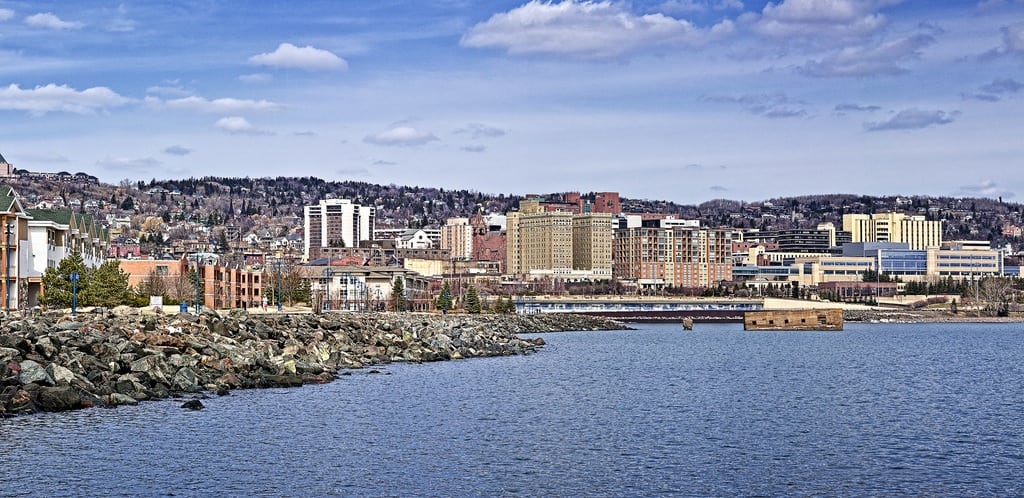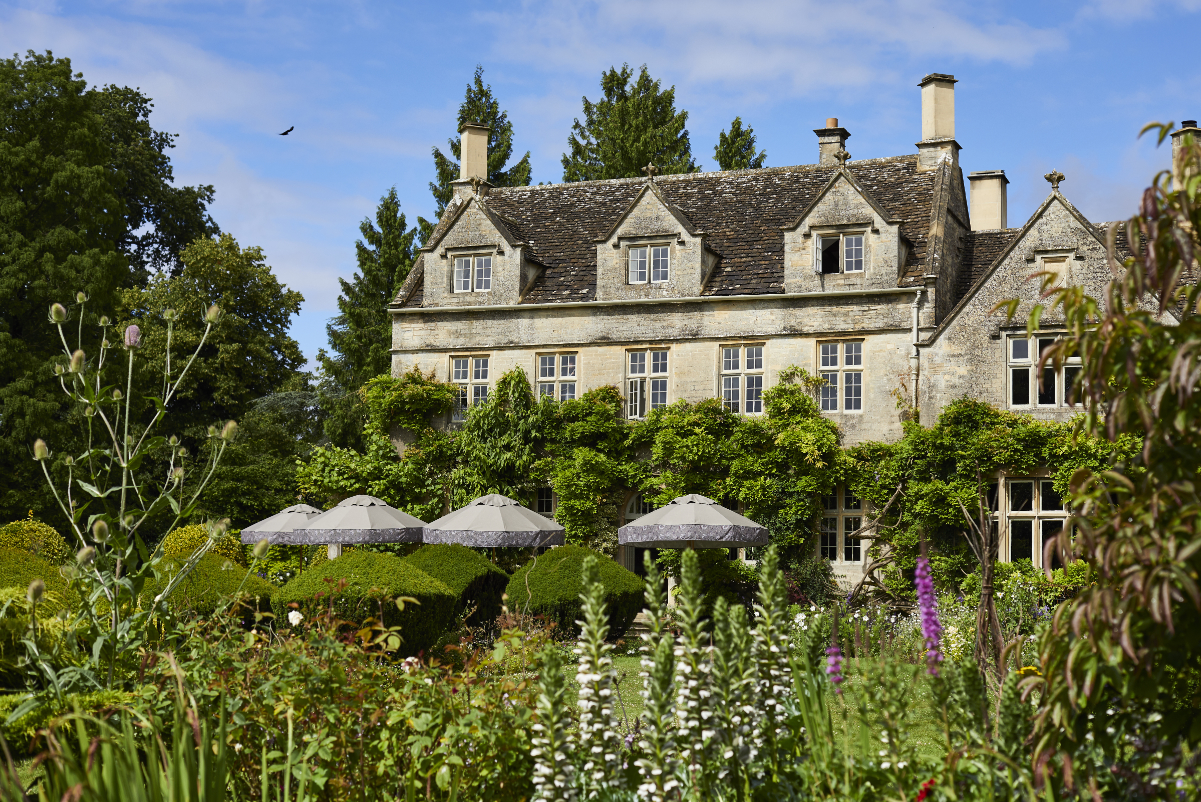Minnesota city manages vacation rentals with new regulations

Skift Take
Joel and Joy Johnson made a bit of history this month when their application for an interim-use permit was OK’d by the Duluth Planning Commission in Minnesota.
The couple was adhering to new city rules for what are commonly known as vacation home rentals. They own a duplex on Park Point that they rent out for short-term rentals, and they were the first on a growing list of owners applying for the permit.
It means $1,000 more in fees, but Joel Johnson said something needed to be done to regulate the growing use of private homes for tourism in the area.
“There are some who don’t pay sales tax, don’t have inspections,” he said. “They think it’s an easy way to make money.”
Vacation rentals differ from traditional lodging because renters take a key and are basically on their own. There are little to no in-stay services and managers are often off-site.
The new city rules require owners to provide key information to renters so that they have a minimal impact on the residential areas where most vacation rentals are found.
The permits also help the city define and identify how renters are operating their property, distinguishing between long-term rentals and the unique vacation types.
“Some were following, some were not,” Keith Hamre, director of city planning, said of the old rental rules and how short-term renters used them. “Some didn’t know they needed to.”
With the new rules, “you’re going to know who’s doing what,” said Bill Burns, who has a rental in front of his home on Park Point.
State focus
The new local rules reflect the consensus reached by a statewide task force formed in 2008 to study the burgeoning vacation rental market. The focus was to “ensure that vacation home rentals operating as businesses are a safe lodging alternative that are managed and regulated on a level playing field with other lodging options.”
While some clamored for statewide blanket rules, the task force, under the direction of the Minnesota State Legislature and Explore Minnesota Tourism, recommended that state law be more definitive in including vacation rentals and that local rules be developed.
“We ran across that report,” Hamre said of the permit-creation process that began last summer. Planners tried to find examples of rules across the country to follow as “best practices,” Hamre said.
In Duluth, as in other places, vacation rentals had been regulated by the same rental rules used by landlords renting long-term.
The task force recommended state and local laws with specific language on shorter-term vacation rentals, which pose unique problems of parking, noise and unfamiliarity with local rules — an example being vacationers on Park Point unaware of when the beach is closed.
Duluth renters are now required to give vacationers a detailed accounting of local rules and to inform neighbors of their business. They also are required to be up to building code and to be current on tax payments.
Significant complaints about behavior at properties will be tolerated only twice before a permit is revoked.
Avoiding problems
Johnson said he agrees that his business should be regulated like other lodgings and said he is careful to avoid the problems of noise and disruption. His rental, near his Lakehead Boat Basin business on the 1000 block of Minnesota Avenue, is set off from residential homes.
He said he also doesn’t have decks where people might gather outdoors and draw the attention of neighbors.
The new Duluth rules enforce a five-night minimum on rentals from June 15 to Sept. 15, the peak of tourism. The rest of the year, the minimum is two nights.
Most of the owners who responded in public comments to the city since it began forming the new rules support making the stays longer in the peak outdoors time in the city. They said in comments to the Planning Commission that longer stays are usually a draw for families who tend to be more respectful to neighborhood concerns.
“They respect the five nights,” Hamre said. “They don’t want to turn (the property) over as often.”
In December, the City Council approved the ordinance covering the interim-use permits. Vacation rental operators have until April 30 to apply for permits. The Planning Commission recommended council approval for four businesses March 12, and it has four more on its agenda Tuesday.
The new rules evolved as more vacation home renters have become involved.
“I don’t think they asked enough of us,” Johnson said of the early process.
He’s still wondering how the number of people allowed in a rental will be handled. A formula had been reached matching that number to bedrooms, but Johnson asked about those with lofts or what to do with people visiting guests at a rental. He said some renters have people over for holiday occasions and he wondered if that would be a violation of the occupying rules and vehicle restrictions.
The Planning Commission has discretion to tack on special requirements with each permit it examines. In the first batch approved earlier this month, it wrote in on Park Point permits that renters needed to be directed to beach access points to deter trespassing.
The trend
In 2010, Arthur Frommer, of the well-known travel guide that bears his family’s name, called vacation homes the “most pronounced trend in travel.”
Hotels and resorts still claim the majority of travelers — 43.6 percent, according to a study compiled in 2011 by HomeAway, a national company that lists vacation rentals. Nearly 20 percent of stays are with friends and family. Next are vacation rentals, with 12.2 percent of the market.
While the use of bed and breakfast facilities is more widely known, they have only 2 percent of the market.
HomeAway and other property-listers see a lot of room for growth. That’s because studies show that many people still don’t think of vacation rentals when they plan a stay. That is changing, and the growth in Duluth sparked the need for more regulation. HomeAway lists more than 60 Duluth rentals on its website and 357 in the region.
Hamre said the city has identified up to 40 properties in the city proper that would fall under the new definition, which it calls “vacation dwelling units.”
Doug Sabo, who also applied this month for a permit on a home on Park Point, is new to the process. He decided to rent his property out last year and just learned of the new rules while making preparations.
He said he travels a lot and uses rentals when he goes.
“It feels a lot more comfortable,” he said. “There’s more of a home feeling.”
Like many people who rent, he and his partner, Lorri Hanna, wanted to increase their income by using their property for vacationers.
He said he doesn’t mind the regulations. They’ll be a good way to avoid problems that have historically plagued Park Point as residents deal with long and short-term renters on the narrow sand spit between Lake Superior and the Duluth-Superior harbors.
Joel Johnson said the Park Point Breeze, a community newsletter, once did an informal survey and found that half of the homes there were considered rentals of some type.
Sabo said many of the worries about vacation rentals come from a historical enmity between permanent residents and renters. He said the new rules will help his type of renting from riling neighbors and are likely to weed out noncompliant landlords.
When Sabo’s permit came before the Planning Commission earlier this month, two nearby residents spoke about Park Point being inundated with rentals and the accompanying noise and other factors ruining the quality of life there.
They seemed reassured by the rules in the new permit process — especially the length of stay requirement — and buoyed by the fact that they can report disturbances and have a voice in how the businesses are run.
“The structure is good,” Sabo said of the new rules.
City takes it on
City Planner Kyle Deming, in researching the trend across the country, wrote in a memorandum to the Planning Commission in October that the nature of vacation rentals — almost always located in residential areas — create special problems: noise, parking and unfamiliarity with local rules.
Similar to the long-term rentals, the vacation homes will be subject to city code and violations will be dealt with, Hamre said.
“They’ll be found noncompliant and go through the violation process,” he said.
“It’s going to be tough,” Joel Johnson said of enforcing the use of permits. But the new rules will give the city a tool, he said, when complaints come about properties that may be operating without proper permission.
Some Duluth owners of traditional lodgings, like bed and breakfasts, had urged city planners to better define and regulate vacation homes. Many chimed in on the ordinance the city was building and said they were satisfied with the end result.
Mike Wilmes of Duluth, owner of a hospitality management and consulting company, was one of the people concerned that vacation homes were slipping under the radar compared to hotels. Wilmes, also a board member with the Minnesota Lodging Association, said there had been “growing concern with our members who strive to provide clean, comfortable and safe accommodations.”
In the end, Wilmes praised the city for its work.
Up the shore
Deming’s research included a look at the only specific vacation rental ordinance in the region, in Lake County.
The Lake County Board of Commissioners voted in a permit process in 2011 that defined what a rental property is and allowed them in areas along the North Shore where they previously weren’t allowed. People wanting to rent a home in those areas have to apply for an interim license, meaning it is subject to the county Planning Commission for review each year.
While the county had been sorting out the rental ordinance, there had been a moratorium on all vacation rentals for two years. Operators needed to file for a conditional-use permit. The moratorium was said to be put in place to protect renters from homes and cabins that don’t meet specific codes. The county Health Department had been seeking more definition on what to look for when inspecting buildings intended for vacation rental.
The Minnesota Vacation Rental Association backed the opened zoning, opposing “regulations on vacation rentals that unreasonably distinguish the short-term rental of private housing in a way that infringes on individual property rights.”
LeRoger Lind of Castle Danger, north of Two Harbors, has been a staunch opponent of the Lake County measure, saying it will ruin the quality of residential living along the North Shore.
“My opinion hasn’t changed,” he said. “It’s basically changing residential areas into commercial areas.”
There have been similar complaints across the country when it comes to allowing vacation rentals in residential areas.
Places like Duluth have lived with the reality of vacation rentals for years under the less-specific rental rules, and there isn’t much choice in keeping them out now, Hamre said. They’re part of the tourism culture developed in the city, he said.
“They were already here, and we wanted them to operate in an appropriate fashion,” Hamre said. “They’re part of the ambassadors of our community.” ___
![]()




